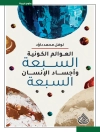H. P. Blavatsky’s ‘The Key to Theosophy’ serves as an essential guide to understanding the foundational principles of Theosophy, a spiritual philosophy that seeks to unify science, religion, and philosophy. Structured as a dialogue that elucidates complex topics such as the nature of the divine, the incarnation of the soul, and the law of karma, Blavatsky employs an accessible literary style, allowing readers—from novices to seasoned scholars—to engage with intricate concepts with clarity. The book reflects the late 19th-century context of burgeoning spiritual movements and the search for universal truth amid a backdrop of material skepticism. As a co-founder of the Theosophical Society, H. P. Blavatsky was motivated by a lifelong quest for esoteric knowledge inspired by her diverse cultural experiences, particularly her travels in the East. Her philosophical inquiries were heavily informed by various spiritual traditions, including Hinduism and Buddhism, melded with Western thought. Blavatsky’s efforts aimed not only to offer insight into spiritual realities but to bridge the chasm between these traditions, fostering a sense of global spirituality. For those intrigued by metaphysics, spirituality, or the intersections between eastern and western philosophies, ‘The Key to Theosophy’ is an enlightening read. It invites readers to explore profound existential questions while providing valuable insights into the universal truths that bind all human thought and experience. This book is a significant contribution for anyone seeking a deeper understanding of the esoteric traditions that have shaped modern spiritual thought.
เกี่ยวกับผู้แต่ง
Helena Petrovna Blavatsky, most commonly known as H. P. Blavatsky or Madame Blavatsky, was a trailblazing figure in the realm of esoteric philosophy and the occult. Born on August 12, 1831, in Yekaterinoslav, then part of the Russian Empire, Blavatsky was a world traveler who immersed herself in various cultural and spiritual traditions. Her best-known work, ‘The Secret Doctrine’ (1888), as well as ‘Isis Unveiled’ (1877), are seminal texts that laid the foundation for modern Theosophy, a movement aspiring to explore the hidden dimensions of life and synthesize science, religion, and philosophy. Another significant contribution from her literary corpus is ‘The Key to Theosophy’ (1889), a comprehensive handbook that elucidates theosophical teachings through a question-and-answer format, intended to make Theosophy accessible to the layperson. Her writing is characterized by the intent to bridge the mystical teachings of the East with the empirical spirit of the West. Blavatsky co-founded the Theosophical Society in 1875 with Colonel Henry Steel Olcott and others, positioning herself as a central figure in the spiritual and philosophical thought of the time. Despite controversy surrounding her claimed psychic abilities and authenticity of her teachings, she remained a pivotal influencer in esoterism and inspired generations of thinkers and writers. Blavatsky’s literature and her movement continue to attract adherents and scholarly attention, underscoring her role as one of the most significant esoteric authors of the nineteenth century. She passed away on May 8, 1891, leaving behind a legacy of spiritual literature and a global theosophical community.












